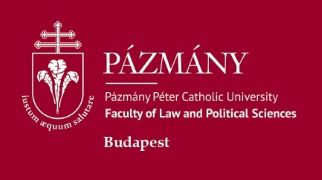Teaching Legal Ethics at the Catholic University
The experience of the Pázmány Law School
Abstract
Across the world, a wide range of concepts and practical approaches have emerged for teaching legal ethics. The specific method adopted by any given law faculty is largely shaped by external regulations governing legal education and by the institution’s own academic traditions. Most commonly, professional ethics are taught within one or more courses dedicated to the ethical standards of the various legal professions.
Catholic universities, however, are guided by an additional framework: the apostolic constitution Ex corde Ecclesiae (1990), which directs them not only to provide professional and academic training, but also to help students cultivate and practise moral principles that inform their entire lives, ultimately leading to personal fulfilment. This perspective aligns closely with the Aristotelian view and with pedagogical theories that regard the teaching of professional ethics as a means of fostering students’ moral character.
From this standpoint, the primary aim of teaching legal ethics is to prepare future lawyers to adopt a strong ethical mindset, to recognise moral dilemmas in their daily work, and to respond to them with conscious and habitual moral reasoning. At the Faculty of Law and Political Sciences of Pázmány Péter Catholic University, the educational system developed in the mid-1990s reflects this approach. Its curriculum places particular emphasis on virtue ethics, seeking to cultivate and strengthen moral behaviour that shapes and enriches the whole of one’s life.
References
Gábor Andrási: Teaching Legal Ethics: What Can We Learn From U.S. Standards and Practices? (19 January 2013). 1–38. Available at SSRN: https://ssrn.com/abstract=2203366 or http://dx.doi.org/10.2139/ssrn.2203366
Aristotle: Nicomachean Ethics. Translated by Christopher Rowe, introduction and commentary by Sarah Broadie. Oxford, OUP, 2002.
Susan Burns: Teaching Legal Ethics. Legal Education Review 4, 1. (1993), 1–24.
Jan L. Jacobowitz & Scott Rogers: Mindful Ethics – A Pedagogical and Practical Approach to Teaching Legal Ethics, Developing Professional Identity, and Encouraging Civility. St. Mary’s Journal on Legal Malpractice & Ethics 4, 1. (2014), 198–240.
Donald Nicolson: Teaching legal ethics: what, how and why. Revista de Educación y Derecho, Education and Law Review 1. (2011), 1–22. https://doi.org/10.1344/re&d.v0i01.2231
Michael Robertson: Providing Ethics Learning Opportunities throughout the Legal Curriculum. Legal Ethics 1 2, 1. (2009), 5 9–76. h ttps://doi.org/10.1080/1460728X.2009.11423921
Katalin Szoboszlai-Kiss – Gábor Andrási: The best of two worlds: Multidisciplinary co-teaching of legal ethics. Hungarian Journal of Legal Studies 64, 2. (2023), 308–321. https://doi.org/10.1556/2052.2023.00466
Lauren Traczykowski: Effective teaching of legal ethics: use an applied ethicist. Legal Ethics 27, 1. (2024), 25–44. https://doi.org/10.1080/1460728x.2024.2399919
János Zlinszky: The Ethics of the Lawyer. Magyar Jog 45, 1. (1990), 17–26.
János Zlinszky: Christian Morals and Legal Ethics. Budapest, Szent István Társulat, 1998.
Normative sources
American Bar Association: Model Code of Judicial Conduct (2020 Edition).
American Bar Association: Model Rules of Professional Conduct (1983, as of 2025).
American Bar Association, Section of Legal Education and Admissions to the Bar: Standards and Rules of Procedure for Approval of Law Schools 2025–2026. Chicago, American Bar Association, 2025.
Regulation 6/2018 (26 March) of the Hungarian Bar Association (MÜK) on the Ethical Rules and Expectations of the Legal Profession.
Code of Ethics of the Hungarian Chamber of Court Bailiffs (6 June 2016).
Regulation 16/2021 (28 June) of the Hungarian Chamber of Notaries (MOKK) on the Code of Ethics of Hungarian Notaries.
Code of Professional Ethics adopted by Resolution 7/2019 (14 December) of the National Assembly of Hungarian Government Officials.
John Paul II: Ex corde Ecclesiae, Apostolic Constitution of the Supreme Pontiff John Paul II on Catholic Universities (15 August 1990).
Ministry of Culture and Innovation: Training and Output Requirements for Higher Education Vocational Training, Bachelor’s and Master’s Programmes applicable from the 2025/26 academic year (published: 21 March 2025).
Regulations of the National Association of Prosecutors on the Fundamental Rights, Duties and Responsibilities of Prosecutors (2001).
Decision 16/2022 (March 2) OBT of the National Judicial Council on the Code of Ethics for Judges and its adoption. Recommendation of the Prosecutor General on the Ethical Rules of the Prosecutorial Profession (2014).





